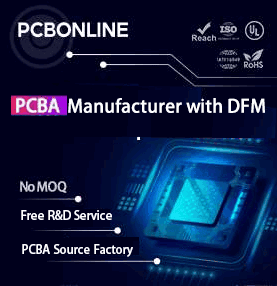There are two primary software solutions for businesses that want to automate their core processes: CRM or customer relationship management and ERP or enterprise resources planning. The former enables brands and companies to manage the way their customers engage and interact with them. At the same time, the latter streamlines its operations by integrating its operational and financial systems into its central databases.

Both ERP and CRM are critical data repositories. They also touch on various departments, and while they’re created on a similar platform, their respective software can be purchased separately or integrated where needed. Moreover, they can be combined and managed in any type of development environment through asp .net development services.
In this post, we’ll go into the key characteristics of ERP and CRM to help you identify their differences and whether or not you require one or both. Continue reading to learn more.
CRM — what is it?
In a nutshell, CRM is a software solution that manages the ways in which customers interact or engage with businesses. Initially, their features were developed primarily for sales departments and called SFA or sales forces automation. However, many other developed systems came about soon after to manage consumer support interactions and business marketing, specifically in call centers once the phone turned into a channel for service.
Many software vendors started to combine these disciplines under a single umbrella referred to as consumer relationship management through development and acquisition. Some systems also cover compensation for sales incentives and performance management. However, they’re separately sold, usually due to their complexity.
What’s ERP about?
ERP came from MRP or materials requirement planning, which initially served the purpose of aiding manufacturers in managing and understanding the resources required for operating any successful enterprise. It also serves as a database for every area of a company. It covers the GL or general ledger, accounts receivable, financial reporting, payroll, and accounts payable. It also extends to the management of inventory, supply chain and order management, and data-related solutions to service-oriented organizations.
Difference between ERP and CRM
While entire organizations will depend on CRM and ERP systems, the fundamental difference is that the latter is used mostly in financial data, while the former is about consumer data. In other words, ERP work is mostly related to back-office work, while CRM is the front of the office.
Do you need both?
Most companies — be it SMBs or well-established enterprises — will all eventually require CRM and ERP systems. Companies that run their financial-related tasks on entry-level tools for accounting end up holding their growth back and moving to an ERP system. And it’s the same for businesses who are managing their customer relationships through spreadsheets and emails.
Conclusion
For a business, it’s always a good idea to adopt solutions that unify CRM systems and ERP systems. Beyond being more affordable compared to buying individual point solutions, a unified model means that information will be more updated without the need to wait on middleware connections or batch uploads. They’ll also be much better for handling workflows and processes, ensuring greater productivity and efficiency as a result.

